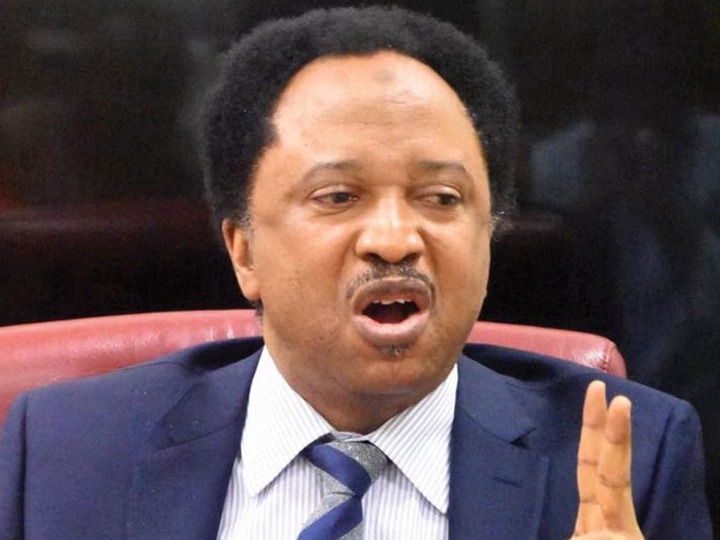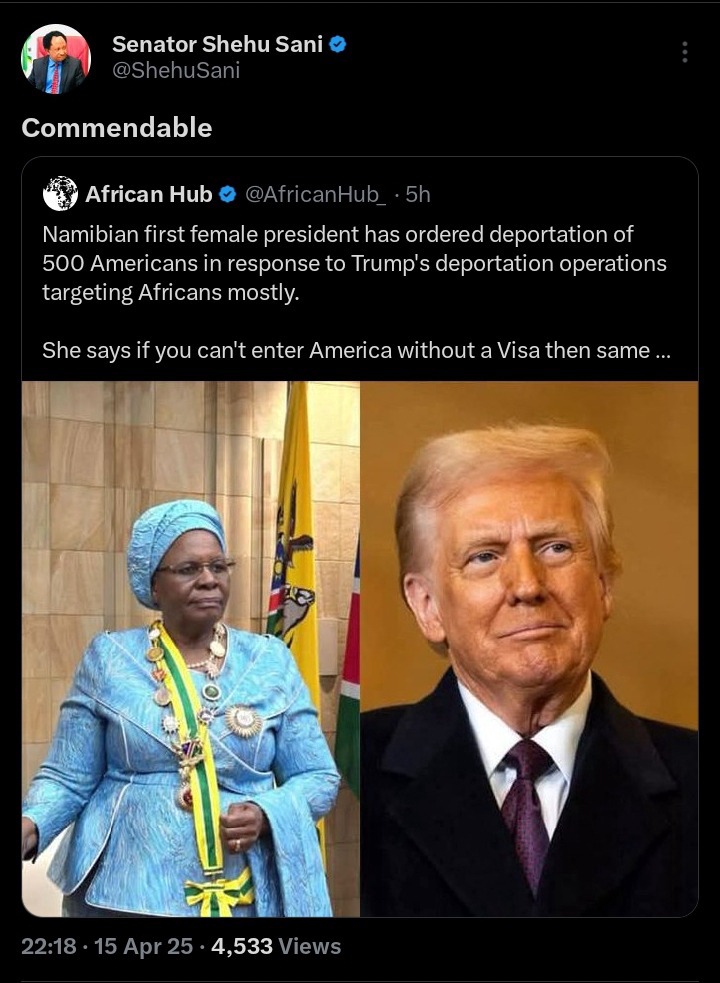
Former Nigerian senator and human rights activist, Shehu Sani, has voiced strong support for Namibia’s newly elected president following her landmark decision to deport 500 American citizens and overhaul the country’s immigration policy. The Namibian leader, who recently made history as the nation’s first female president, announced the measures in what many are calling a bold response to the discriminatory immigration practices once implemented under former U.S. President Donald Trump.
The deportation order, according to the Namibian president, is a direct response to what she described as years of unfair treatment towards Africans, particularly during the Trump administration. “If you can’t enter America without a visa, then the same applies to Namibia. No American should enter Namibia without a visa,” she declared, alongside a sharp increase in visa fees for American travelers.
In a move that has drawn widespread praise across Africa, the president also introduced a sweeping visa-free policy for all African nationals. “African nations should love each other and visit each other without visa requirements,” she stated, calling for greater unity and mobility across the continent.The president didn’t stop at policy announcements—she delved into the historical roots of the visa system itself, describing it as a remnant of colonial control designed to restrict African access to resources and opportunities abroad. “Visa was a tool invented by the whites to control Africans from pursuing their stolen natural resources abroad. Let’s now use visa requirements to block them from coming back to exploit more of our natural resources, especially the minerals,” she said.
Reacting to the news, Shehu Sani took to social media, quoting the report and offering a concise but clear endorsement: “Commendable.” His one-word reaction has been widely interpreted as a strong show of solidarity with the Namibian leader’s position.Online, Sani’s approval echoes a growing sentiment among many Africans who have long criticized what they see as an imbalance in international visa arrangements—where Western countries impose strict entry requirements on Africans, while enjoying relatively easy access to the continent.
The Namibian president’s actions are being hailed as a potential turning point in Africa’s diplomatic approach to the West, with increasing calls for other African leaders to adopt similar policies that prioritize continental unity and demand reciprocity in international relations. Her stance is also fueling renewed discussions around the possibility of a visa-free Africa, a vision that has gained traction in recent years through initiatives like the African Union’s Agenda 2063.

As the continent watches Namibia’s unfolding immigration shake-up, many believe this could spark a wider reexamination of Africa’s engagement with foreign powers—and a shift toward policies rooted in dignity, equality, and mutual respect.


